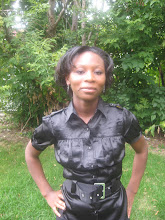Donne through the use of various literary techniques such as diction, cataloging, and apostrophe, creates a sympathetic mood in his poem "Love's Deity"
The diction of the words used by Donne suggest that the speaker, knowing that the woman he loves will not reciprocate his feelings for her is devastated and communicates his depression through his word choice. The word sunk used in the first stanza alludes to how lowly, depressed, and pathetic the speaker feels having to love someone who doesn't love him back. This feeling continues to be presented through the usage of phrases such as, "produced destiny" and "I must love her" which suggest that the speaker though disheartened by his lover's response, cannot cease to lover her which makes depresses him even more. The diction of these phrases more than any other used in the first stanza contributed to the sympathetic mood because knowing that the speaker is at the mercy of Love's deity who refuses to let him stop loving this woman. In the second and third stanza, the naïve and foolish connotations associated with the words, "young" and "child" which are used to describe love's deity implies that the deity is inexperienced, inconsiderate, and foolish when making people's romantic destinies. These implication much like that of the phrases in the first stanza paint the speaker as victim who you can't help but to sympathize with.
The use of an apostrophe in the third stanza suggests that being in love with someone who does not love him has driven the narrator mad and to the point where he is speaking to Love's deity who is neither present nor an actual being who he can speak with. This also implies that the actions of this deity are so extreme and unjust that they have compelled the author to verbalize his frustrated because the pain that he has to bear while loving this woman can no longer be contained. In the fifth and sixth lines of the third stanza wherein the apostrophe occurs the speaker evokes sympathy through this tool because he continues and says, "to ungod this child again" which is a ridiculous statement because it is impossible for the speaker to physically "ungod" Love's deity because he is only human. It is this conclusion of the speaker's mortal state that creates some form of pity and sympathy toward his powerlessness because we have all felt as though we had no control over who we loved at one point in our lives.
Another literary technique used by Donne that establishes the mood of sympathy is that of divine imagery because it transform love into something that is uncontrollable and vicious in a sense. The continual reference to "Love's Deity' and also the allusion to roman mythology create the sympathetic mood because once again the speaker is at the mercy of beings who he can never influence and so must live with his fate.
Donne, in this poem, through the use of diction,apostrophe and divine imagery creates and fantastically emotional poem that evokes feelings of sympathy while having various tones which resemble those seen in the stages of grief, giving new meaning to the traditional definition of romantic poetry.
